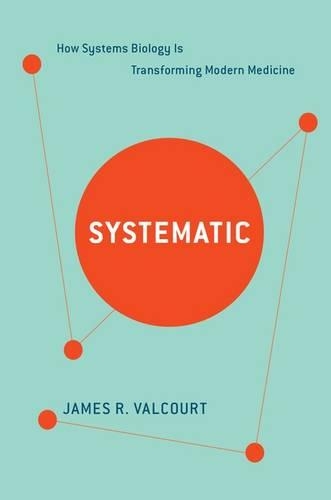
Systematic: How Systems Biology Is Transforming Modern Medicine
(Hardback)
Publishing Details
Systematic: How Systems Biology Is Transforming Modern Medicine
By (Author) James R. Valcourt
Associate editor Jackie Johnson
Bloomsbury Publishing PLC
Bloomsbury Academic USA
1st March 2017
United States
Classifications
Tertiary Education
Non Fiction
570.285
Physical Properties
Hardback
288
Width 135mm, Height 210mm
424g
Description
SYSTEMATIC is the first book to introduce general readers to systems biology, which is revolutionizing medical research and treatments. In traditional bottom-up biology, a biologist might spend years studying how a single protein works. Systems biology focuses on the big picture--studying how the surrounding biological network or system affects the proteins function.
This breakthrough became possible only when powerful computer technology enabled researchers to process massive data to study complete systems, and has led to progress in the study of gene regulation and inheritance, cancer drugs personalized to an individuals genetically unique tumor, cancer vaccines, and the discovery that transplanting cells from the gut of a malnourished person into his well-nourished twins intestinal system causes the healthy person to become malnourished regardless of how well or how much he eats. Similarly, cells transplanted from an obese person can cause the slender hosts metabolism to switch toward obesity without changing her diet or activity level. Much of what we have taken for granted is being revised by systems biology.
Research biologist Jim Valcourt gives readers an animated and in-depth guided tour of how systems biology is having a major impact on science and medicine.
Reviews
"An expert overview of a spectacularly burgeoning field." - Kirkus Reviews
"Accessible introduction to systems biology . . . Valcourt delivers a lucid introduction to this ingenious combination of the hard sciences and advanced technology that adopts a holistic view of natural phenomena." - Publishers Weekly
"Odd and interesting." - Booklist
Author Bio
James Valcourt is a scientist and researcher pursuing a Ph.D. in biology at Harvard University. He has worked as a researcher at D. E. Shaw Research in New York City on drug discoveries using supercomputer simulations to study cellular receptors and design new pharmaceuticals. He also was a recipient of the quarter-million dollar John and Fannie Hertz Foundation Graduate Fellowship. He graduated magna cum laude from Princeton University with an A.B. in Molecular Biology, receiving the M. Taylor Pyne Honor Prize. He lives in Cambridge, Massachusetts.
